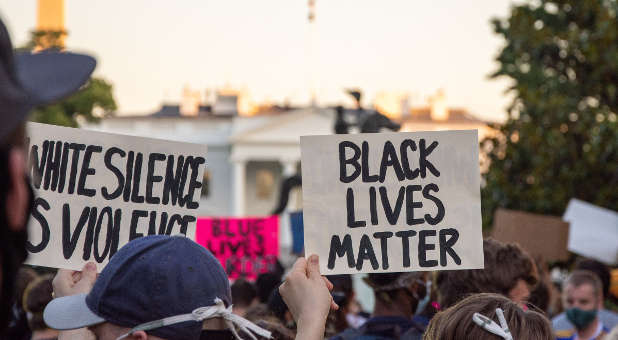Why Some Sin Can Only Be Seen Through the Eyes of God
Like almost everyone else, I know I have been thinking about and discussing racism a lot over the past few weeks. I am not going to use this blog to speak about any particular case of racism because there have been and will be plenty of blogs and articles dissecting every facet of racism and its effects on our world.
I do want to make a clear, unambiguous and unequivocal statement that racism is sin.
Most people that I know, when confronted about racism or bigotry, respond by denying that they are racist or bigoted. For the rest of this blog, I am going to use the word bigotry to describe racism and all other “isms” which result from deep seated hatred. This is because bigotry encompasses all deeply held hatred, which goes beyond color and even culture.
When the recent outcry against racism began, I stated the same thing: “I am not a racist.” We say that because we fully and completely believe that our statement is true. Yet, for many of us, that statement is what we believe to be true in our hearts, but it says in Jeremiah 17:9, “The heart is more deceitful than all things and desperately wicked; who can understand it?”
As I prayed and sought out any seeds of bigotry within my own heart, I was directed by the Spirit to read Numbers 5:12-31. These verses may be unknown to some of you, but they discuss what a husband was to do if he believed his wife had been unfaithful.
But the text goes beyond simply believing that his wife was unfaithful. It speaks of the husband being overcome by a “spirit of jealousy.” These verses describe a circumstance when a husband was so consumed by an evil spirit that he was outside of himself. It is this spirit of jealousy that is still considered in courtrooms today when dealing with what are called “crimes of passion.”
You may be wondering: What does a jealous spirit or a crime of passion have to do with bigotry? I believe the answer is found in Numbers 5:18:
“Then the kohen will have the woman stand before Adonai, loosen [uncovers] the woman’s hair, put into her hands the reminder offering, the offering for jealousy, while in the kohen’s own hands are the bitter waters that bring a curse.”
Let me try to explain what is taking place in this text. The husband is overcome by a spirit of jealousy, so much so that even if his wife is totally innocent and he cannot accept her innocence as true. This spirit of jealousy is so overwhelming and controlling that he is unable to fairly judge her because his heart has been so affected that he cannot see the truth.
So, G-D, in His infinite wisdom, provided a means for justice and truth to be achieved even when the husband was unable to see clearly because of his sin of jealousy. The husband would bring his wife to the kohen (priest) and the priest would uncover her head. This language doesn’t just mean he took off her head covering;
It means the husband, for this moment and this single situation, stepped away from being the covering for his wife, and the priest, for this single situation, stepped into that role. The woman would stand before G-D, and the priest would stand as her authority in this matter.
Why? Because there are some things so emotionally charged that we as humans cannot fairly, justly and honestly judge for ourselves.
I believe for most of us. bigotry is one of these issues. It is a sin issue that is so emotionally charged and so deeply seated within us that many of us have become blinded by the spirit.
The only way we can really see what is true when it comes to bigotry is to stand before G-D and allow our priest, Yeshua, to uncover our head, so that He can show us if we are truly guilty. {eoa}
Eric Tokajer is author of With Me in Paradise, Transient Singularity, OY! How Did I Get Here?: Thirty-One Things I Wish Someone Had Told Me Before Entering Ministry, #ManWisdom: With Eric Tokajer, Jesus Is to Christianity as Pasta Is to Italians and Galatians in Context.














































